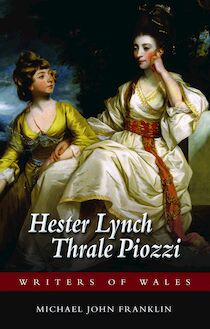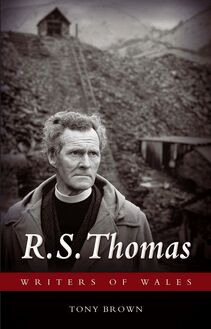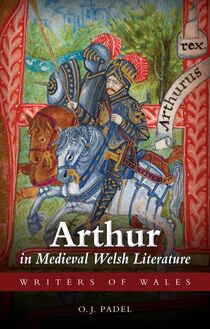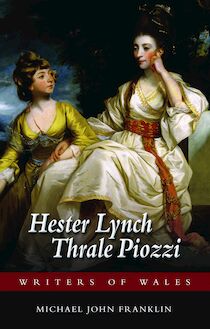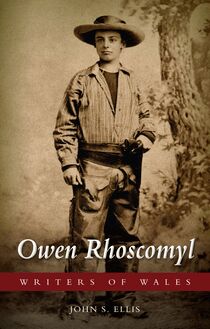B. L. Coombes , livre ebook
61
pages
English
Ebooks
2017
Vous pourrez modifier la taille du texte de cet ouvrage
Obtenez un accès à la bibliothèque pour le consulter en ligne En savoir plus
Découvre YouScribe et accède à tout notre catalogue !
Découvre YouScribe et accède à tout notre catalogue !
61
pages
English
Ebooks
2017
Vous pourrez modifier la taille du texte de cet ouvrage
Obtenez un accès à la bibliothèque pour le consulter en ligne En savoir plus
Publié par
Date de parution
15 mai 2017
Nombre de lectures
2
EAN13
9781786831781
Langue
English
Bert Coombes settled in south Wales in 1909, where he worked as a miner for more than forty years. He was motivated to write after witnessing the death of two work mates underground, and he determined to tell his truth about the lives of miners and their families. His first book These Poor Hands was acclaimed by critics such as J. B. Priestley and Cyril Connolly and is considered to be among the most authentically vivid accounts ever written about mining. It describes with moving simplicity the harsh conditions in which he and his comrades worked and lived and the bond which existed between them in the face of poverty, hunger, danger and death. These Poor Hands was followed by several other books, all consistent in their philosophy, style and integrity - there is no hint of sentimentality, just immense sympathy for the miners' lot, its hardship and its humour. As the Times Literary Supplement noted in 1974, 'he was one of the few proletarian writers of the 1930s who were impressive as writers rather than proletarians'. As a result of his success Coombes became a frequent broadcaster and his Plan for Britain was published in the Picture Post. This excellent introduction to the life and work of Bert Coombes is valuable not just for its penetrating assessment of Coombes, but for the light that it sheds on the social and industrial context in which he lived. His writing articulated the social and economic injustice of contemporary capitalism and has enduring value because of the way in which it gives imaginative expression to the belief that working people should have greater control over their well-being and destiny.
Publié par
Date de parution
15 mai 2017
EAN13
9781786831781
Langue
English
Writers of Wales
B. L. Coombes
Writers of Wales
Editors:
Jane Aaron
M. WynnThomas Andrew Webb
Honorary Series Editors:
R. Brinley Jones Meic Stephens
Other titles in the Writers of Wales series: Owen Rhoscomyl (2016) John S. Ellis Dylan Thomas (2014), Walford Davies Gwenlyn Parry (2013), Roger Owen Welsh Periodicals in English (2013), Malcolm Ballin Ruth Bidgood (2012), Matthew Jarvis Dorothy Edwards (2011), Claire Flay Kate Roberts (2011), Katie Gramich Geoffrey of Monmouth (2010), Karen Jankulak Herbert Williams (2010), Phil Carradice Rhys Davies (2009), Huw Osborne R. S. Thomas (2006), Tony Brown Ben Bowen (2003), T. Robin Chapman James Kitchener Davies (2002), M. Wynn Thomas
Bill Jones and Chris Williams
B. L. COOMBES
University of Wales Press
2017
© Bill Jones and Chris Williams, 2017 First published in paperback in 1999
All rights reserved. No part of this book may be reproduced in any material form (including photo-copying or storing it in any medium by electronic means and whether or not transiently or incidentally to some other use of this publication) without the written permission of the copyright owner except in accordance with the provisions of the Copyright, Designs and Patents Act 1988. Applications for the copyright owner s written permission to reproduce any part of this publication should be addressed to the University of Wales Press, 10 Columbus Walk, Brigantine Place, Cardiff, CF10 4UP.
www.uwp.co.uk
British Library Cataloguing-in-Publication Data
A catalogue record for this book is available from the British Library.
ISBN: 978-1-78683-151-4 ISBN: 978-1-78683-178-1
The rights of Bill Jones and Chris Williams to be identified as authors of this work have been asserted in accordance with sections 77, 78 and 79 of the Copyright, Designs and Patents Act 1988.
The publisher has no responsibility for the persistence or accuracy of URLs for any external or third-party internet websites referred to in this book, and does not guarantee that any content on such websites is, or will remain, accurate or appropriate.
Contents
Acknowledgements
Chapter I
Chapter II
Chapter III
Chapter IV
Chapter V
Chapter VI
Chapter VII
Chapter VIII
Chapter IX
Chapter X
Chapter XI
Chapter XII
Select Bibliography
Acknowledgements
The authors would like to thank the following individuals for their assistance and support in the preparation of this work: Chris Baggs, Elisabeth Bennett, Tony Brown, Janet Davies, Vivian Davies, Brian Dyson, Susan Jenkins, Ceinwen Jones, R. Brinley Jones, Stephen Knight, Susan Knowles, Siân Moran, Liz Powell, Alun Richards, John Saville, Peter Stead, Meic Stephens, David Thomas, Ned Thomas, Ceri Thompson and Christine Woodland.
They would also like to record their appreciation for the help of staff at the British Library, the British Library Document Supply Centre, the British Library Newspaper Library, the Brynmor Jones Library at the University of Hull, Cardiff Central Library, Cardiff University Library, the Glamorgan Record Office, the Herefordshire Record Office, the National Library of Wales, Neath Public Library, Sussex University Library and University of Wales Swansea Library.
I
I was fascinated by that light in the sky. Night after night I watched it reddening the shadows beyond the Brecknock Beacons, sometimes fading until it only showed faintly, then brightening until it seemed that all the country was ablaze.
The winter wind that rushed across the Herefordshire fields where the swedes rotted in heaps, and carried that smell of decay into the small farmhouse which was my home, seemed to encourage the burning, until the night sky would redden still more. Sometimes I felt sure that I could see these flames and feel their warmth, but it could only have been fancy, for they were more than sixty miles away from us.
Thus B. L. Coombes began his T HESE P OOR H ANDS : T HE A UTOBIOGRAPHY OF A M INER W ORKING IN S OUTH W ALES (1939). In these initial paragraphs he constructed an image of himself as a young, rural Englishman, lured from his native county and its stagnant agricultural economy by the pulsating promise of the valleys of south Wales, with their industries of iron, steel and coal.
Whether or not it was possible to see the glow of the Bessemer works at Dowlais from the village of Madley in Herefordshire, where the adolescent Coombes lived with his mother and father, is hardly important. For dramatic effect Coombes may well have sought to recreate the glo w on all sides in the heaven foun d by his hero George Borrow, when that famous pedestrian approached the iron town of Merthyr Tydfil at night (W ILD W ALES , 1862). What is more significant is that, for reasons literary, personal or both, in opening T HESE P OOR H ANDS with this clutch of contrasts (rural/urban, agricultural/ industrial, English/Welsh), Coombes deliberately simplified the complexities of his early life and experience.
B. L. Coombes, the name he used in all his published work, was born Bertie Louis Coombs Griffiths, in Wolverhampton, Staffordshire, on 9 January 1893. He was the first, and only, child of James Coombs Griffiths, at that time a grocer, and of Harriett Thompson. The details of Coombes s early life are unclear, and nowhere in his writings does he shed much light on his parents, or on his relations with them. His father was alert, active, always hurrying to do something, but was handicapped by the limp caused by a horse falling on him during the South African War (T HESE P OOR H ANDS ). His mother had been slender and quite good looking in those days when he had trotted alongside and made attempts to help her in the tasks of that country home , but she had gone wrinkled and bent before she should have because she had worked too hard and gone without so many things she needed ( Better Off , L EFT R EVIEW , 3, No. 14, March 1938). She ended her life an impoverished widow, her son struggling to raise his own family, two counties away but a world apart, against the depressed economic climate of the inter-war years.
It is likely that Coombes s parents, who came to use the surname Cumbs, Cumbes or Coombes rather than Griffiths, had either roots or connections in the Madley district of Herefordshire, for their son regularly referred to it as their, and his, homeland . Yet what Coombes did not explain in T HESE P OOR H ANDS wa s that, by the time he considered leaving th e flat, rich lands fo r th e barren hills , his acquaintance with the South Wales Coalfield had been much more intimate than he led his readers to believe. As he explained in his second, unpublished autobiography, Home on the Hill (1959):
I knew the smell and sound of mining as a boy. I had watched the crowds of coal grimed men coming home and had failed to recognise my own father when he was in pit clothes. I had seen many carried to their homes, and had sat up in bed many nights to watch the glowworm-like crowding of tiny lights near the pit top as the men waited to go down.
By the time Coombes was around ten years old, he was living in a terraced house in Treharris, Glamorgan, whilst his father and uncles worked, along with over 1,500 other colliers, at the local Deep Navigation Colliery. His schooling, up to the age of twelve, took place in this mining town, and the young Coombes showed some signs of literary and intellectual promise, winning a school prize for a poem written on the subject of the nearby River Taff. Yet:
After getting near the highest mark in the Scholarship... I rejected the schoolmaster s advice and urged my parents to carry out the ambition which I had so often heard them talk about in the evenings. A small farm was vacant and they returned to their native area in Herefordshire.
(N EATH G UARDIAN , 11 October 1963)
This move took place in either 1905 or 1906, Coombes s father obtaining the tenancy of Blenheim Farm, Madley, and Coombes himself beginning work on the land as a labourer, both on the family farm and on neighbouring estates. He learned to plough, hedge, thatch and milk, to handle horses, and to appreciate the cider that was made and kept in the adjoining barn. He grew to lov e the land, the seasons and the continual work that goes with them , and i n summer, all our surroundings were lovely . But as he explained in T HE L IFE WE W ANT (1944):
it was not always summer, and we could not live and have our being on surroundings alone. Life for the small man who had to depend on the land for a living was heavily handicapped. My parents worked hard. They set no limits to their efforts. But money was always scarce and the heavy rent was an ogre that shadowed all the days of our life.
The tenancy was expensive, and the land that came with it scattered small patches of ground . Apples and swedes were picked only to fetch pitifully low prices in the markets, and the price of coal was too dear for us to buy . The relatives that remained in south Wales wrote, remarkably it seemed, telling of quite the opposite situation there, where coal was plentiful and fresh produce costly. With little money coming in, new clothes were very rare, and pocket-money was something to imagine . The temptation to leave the land was strong, for this , wrote Coombes in T HESE P OOR H ANDS , did not suit my ideas of life. I wanted good clothes, money to spend, to see fresh places and faces, and - well, many things . In T HE L IFE W E W ANT he summed up his growing sense of bitterness, a sort of confused frustration and helplessness :
Here we were, working hard to produce good things from the earth and to sell them, my parents urgently needing the money to bring up our small family to be good and decent citizens who in turn could enrich our country and their fellow-beings; yet there seemed no way of getting a fair price for our stuff. Around us was some of the richest and most beautiful land in the world, yet it held no encouragement or security for me and m
